Categories
Links
Archives
Tag Cloud
Volunteer in Bolivia at a children’s center (Interview part II)
Author: adminViews 10.361 17 dic
In continuation of the first part of the interview with the founder of the childcare centre in Bolivia we continue the interview with more questions:
Briefly, what is your overall experience with volunteers?
We are constantly moved and inspired by the people who come to volunteer with us and share so freely their talents and time. The first week can often be overwhelming as hardly anyone speaks English and the children are all clamoring for your attention. But from experience we know that by the end of the second week, our volunteers feel very at home in the nursery and understand the routines and activities and realize that they are really being helpful. We recommend a minimum stay of 1 month, as too much change can unsettle the children and also the local staff. Actually, many of our volunteers choose to extend their stay as they see the true benefits of their presence in the nursery and for their study Spanish in Bolivia.
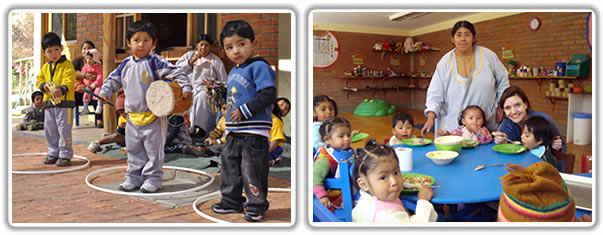
Where do you see the project going in the future? Is there an ultimate aim?
The local women in the nursery work tirelessly with many children. There is danger of them simply becoming exhausted or getting sick and we have no substitute teachers. Therefore, we seek to include more extracurricular excursions and creative activities not only for the children but also for the mothers and teachers, such as dance, aerobics, yoga and art. In addition, the continued support of the volunteers strengthens and motivates the women and relieves them of some of the pressure which comes from teaching and taking care of so many children alone. We also like to extend our activities to set up an after-school club for older children (5 years onwards) who have graduated from our nursery and who are now at school. As school finishes at midday, many of the children again are at risk as there is nobody at home to care for them or help them with school work. Our ultimate aim is to promote the rights of the children to reach their potential in a community which is committed to them thriving.
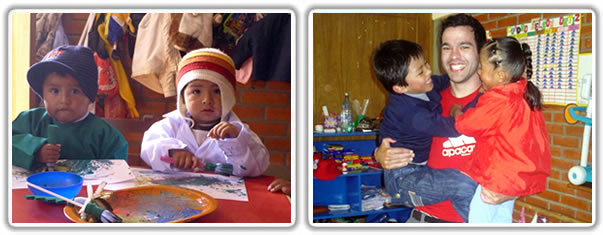
To a potentially indecisive volunteer, what would you say about the social implications of volunteering in Bolivia?
We offer you the opportunity to come and experience Bolivia, the real Bolivia that tourists rarely see. Volunteering is ideal for people seeking to learn more about their world, and perhaps more about themselves, and their role in this society. Bolivia has taught us the true meaning of ‘reciprocidad’ which means reciprocity; a concept at the heart of Andean culture. It is all about giving back and contributing in a way that enriches both the person who is giving, and the person who is receiving, equally. Over the years, we have welcomed into our family and our community many volunteers, from all across the globe, and shared the joy of their discovery and growing sense of belonging. We see for ourselves how long lasting, and positive impacts they have on the lives of local people, who in turn, make sure the volunteers always carry their beautiful smiles in their hearts.
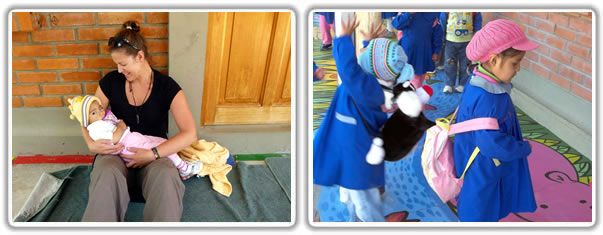
The Centre has been evaluated externally on two occasions since it opened by the municipal government – in both evaluations, it obtained some of the best scores for nurseries in the city of La Paz , scoring 90/100 in 2004 and 98/100 in 2005. The evaluations took into account the quality of education, security, hygiene, participation of parent committees and the nutritional status of the children. Volunteer Work Latin America describes the project as a leading example of social service excellence and empowerment, with a charitable but sustainable method rather than adopting just an outside-in solution to counter the oppression and poverty of indigenous people in Bolivia.
If you have become inspired to discover Bolivia and perhaps help the tias at this unique volunteer project in Bolivia, do not hesitate to contact us for more information!

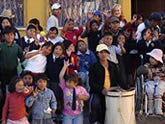
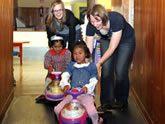
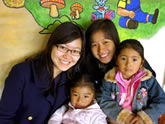
4 Responses for "Volunteer in Bolivia at a children’s center (Interview part II)"
Could you tell something more about the specific teaching method used? thank you
Hi Nils. The nursery uses the Montessori Method for teaching which is well structured and organised and adapted to the environment of the young children aged 6 months to 4 years. Volunteers can be an extra
pair of hands to help us with regular classroom support and work alongside the tias. These same women who carry out this incredible, but often invisible, work feel appreciated and supported. It is incredibly motivating for all the local team to welcome volunteers into the team, and the children do not hesitate to show their affection either
Thank you for this Part I and Part II interview. A very inspirational read and it just goes to show how many people are so grateful for each helping handy out there. It truely makes all the difference
those extra curricular activities sound found I love to join in this project and do some of those things with the kids!
Leave a reply